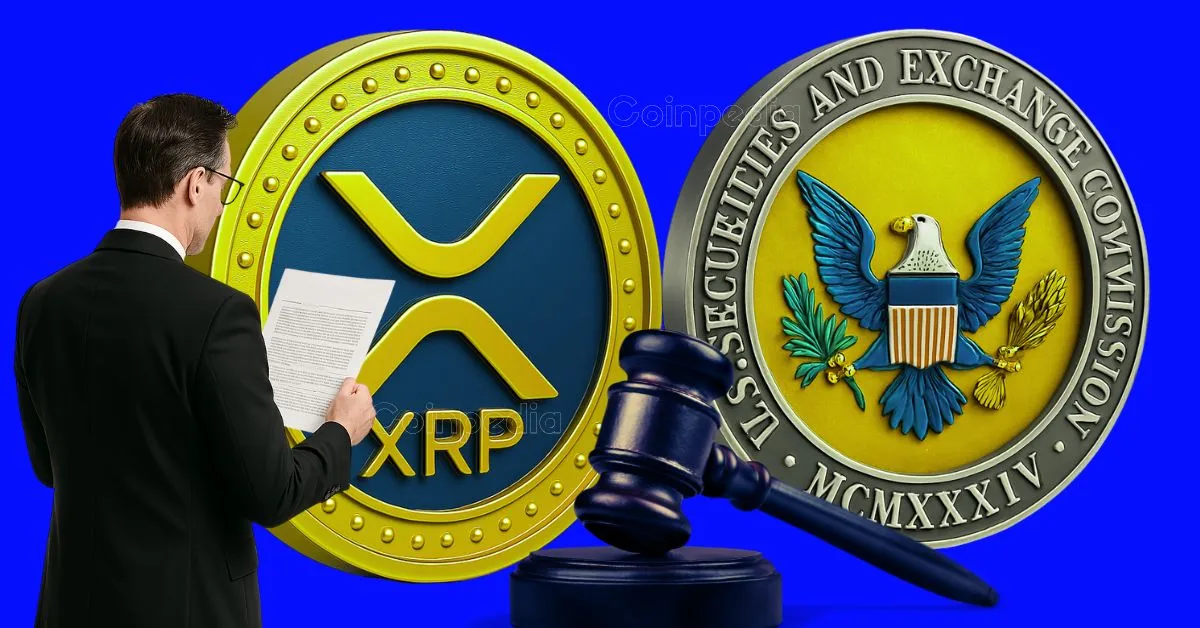The Ripple vs. SEC Saga: A Legal Odyssey with No Clear End in Sight
The cryptocurrency world has been captivated by a legal battle that has stretched on for years, with no definitive resolution in sight. The lawsuit between Ripple Labs and the U.S. Securities and Exchange Commission (SEC) has become a labyrinth of legal complexities, regulatory ambiguities, and market uncertainties. What began as a dispute over the classification of XRP has evolved into a case that could redefine the regulatory landscape for digital assets in the United States.
The Genesis of the Legal Battle
The origins of this legal saga trace back to December 2020, when the SEC filed a lawsuit against Ripple Labs, alleging that the company had raised \$1.3 billion through the sale of XRP, which the agency classified as an unregistered security. Ripple, however, argued that XRP should be considered a currency rather than an investment contract. This dispute triggered immediate repercussions, with major cryptocurrency exchanges delisting XRP and its price plummeting. The ensuing years have been marked by a series of legal filings, expert testimonies, and judicial decisions, creating a rollercoaster of emotions for XRP holders and industry observers alike.
The Elusive Resolution: A Case That Refuses to Conclude
Predicting the end of the Ripple vs. SEC lawsuit has proven to be a futile endeavor. Numerous dates and deadlines have come and gone, each promising a potential resolution, only to be met with further delays and complications. Initial hopes for a quick settlement faded as both sides entrenched themselves in their positions. Even after Judge Analisa Torres issued a pivotal ruling in July 2023, which offered a mixed bag of wins for both Ripple and the SEC, the saga continued. The judge’s decision that XRP, as sold on exchanges, was not a security, while Ripple’s direct sales to institutional investors did constitute unregistered securities offerings, left the case in a state of limbo.
The SEC’s initial pursuit of an appeal further prolonged the legal uncertainty, despite Ripple dropping its cross-appeal. The case is not officially over, and the lack of a definitive conclusion has left investors and industry participants in a state of suspense.
The Current Status: A Legal Maze with No Exit
The Ripple vs. SEC lawsuit remains in a state of flux, with several factors contributing to its prolonged duration. The SEC has confirmed that the case is fully in the appeal phase, which could extend the legal uncertainty surrounding XRP for years to come. The appellate court system’s procedural hurdles and the potential for further delays add to the complexity of the case.
Moreover, the lack of a definitive legal precedent has left other cryptocurrencies in a state of regulatory limbo. Many digital assets could potentially fall under securities laws, creating a cloud of uncertainty that deters institutional investors and limits adoption. The procedural hurdles involved in reaching a resolution, including the need for an SEC vote and other steps, further complicate the timeline for a potential settlement.
Expert Perspectives: A Conflicting Narrative
Legal experts have offered a range of perspectives on the timeline and potential outcomes of the Ripple vs. SEC lawsuit. Some, like attorney Jeremy Hogan, have suggested that the case could extend beyond 2026, depending on the outcome of the current proceedings. Others, citing sources within the SEC, have pointed to the possibility of a resolution but have not offered specific timelines. The wide range of expert opinions underscores the complexity of the case and the difficulty in predicting its ultimate conclusion.
Adding to the confusion, there have been conflicting interpretations of court rulings and filings, further muddying the waters. The lack of clarity has left investors and industry participants scrambling to decipher the cryptic clues emerging from the legal battlefield.
The Impact on XRP and the Broader Crypto Market
The Ripple vs. SEC lawsuit has had a profound impact on XRP and the broader cryptocurrency market. The price of XRP has been highly sensitive to developments in the lawsuit, experiencing significant swings in response to court rulings, SEC filings, and even rumors and speculation. The regulatory uncertainty surrounding XRP has deterred some institutional investors and limited its adoption by businesses.
The outcome of the case could have far-reaching implications for the regulation of cryptocurrencies in the United States, potentially shaping the future of the industry. A favorable outcome for Ripple could provide much-needed clarity for XRP, paving the way for its relisting on major cryptocurrency exchanges and increased adoption by institutions. Conversely, an unfavorable outcome could further entrench the regulatory uncertainty that has plagued the crypto market.
Beyond the Verdict: The Path Forward
Even if the Ripple vs. SEC lawsuit were to conclude in the near future, the implications for XRP and the crypto market would extend far beyond the courtroom. The case has highlighted the need for a clear and comprehensive regulatory framework for cryptocurrencies in the United States. Reducing regulatory uncertainty would provide increased incentive for innovation and broader adoption of blockchain technology.
The outcome of the case will undoubtedly have a lasting impact on XRP and the future of cryptocurrency regulation. Investors and industry participants must brace themselves for potentially more twists and turns as this legal drama unfolds. While the prospect of a final resolution may seem distant, the case’s conclusion will shape the regulatory landscape for digital assets in the years to come.
Conclusion: The Waiting Game Continues
The Ripple vs. SEC saga is far from over. The legal battle has become a testament to the complexities and uncertainties that surround the regulation of digital assets. As the case continues to unfold, investors and industry participants must remain vigilant, adapting to the ever-changing legal landscape. The outcome of this case will not only determine the fate of XRP but also set a precedent for the broader cryptocurrency market. For now, all we can do is wait, watch, and try to decipher the cryptic clues emerging from the legal battlefield. The waiting game continues, and the stakes have never been higher.





